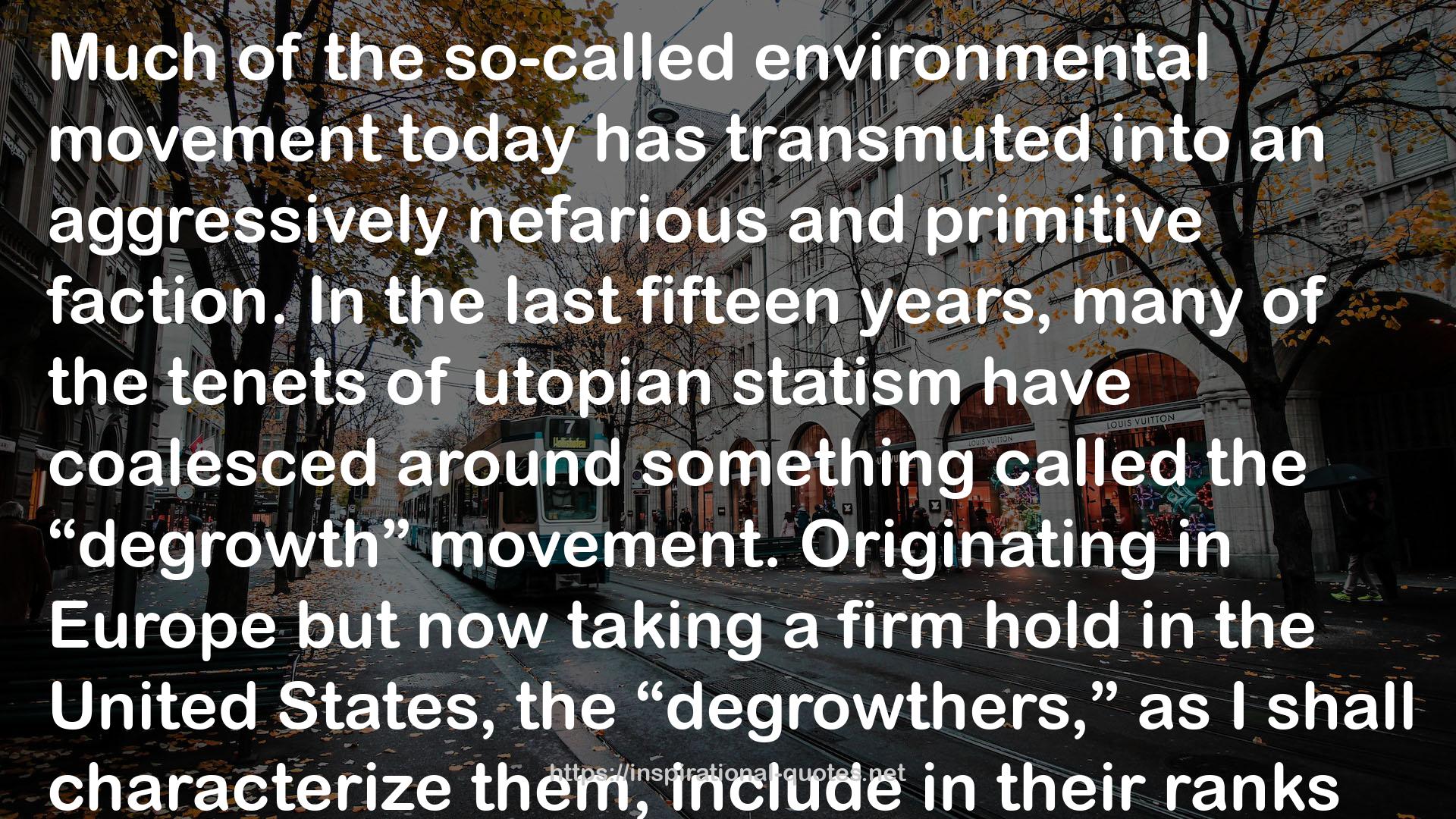" Much of the so-called environmental movement today has transmuted into an aggressively nefarious and primitive faction. In the last fifteen years, many of the tenets of utopian statism have coalesced around something called the “degrowth” movement. Originating in Europe but now taking a firm hold in the United States, the “degrowthers,” as I shall characterize them, include in their ranks none other than President Barack Obama. On January 17, 2008, Obama made clear his hostility toward, of all things, electricity generated from coal and coal-powered plants. He told the San Francisco Chronicle, “You know, when I was asked earlier about the issue of coal . . . under my plan of a cap and trade system, electricity rates would necessarily skyrocket. . . .”3 Obama added, “. . . So if somebody wants to build a coal-powered plant, they can. It’s just that it will bankrupt them because they’re going to be charged a huge sum for all the greenhouse gas that’s being emitted.”4 Degrowthers define their agenda as follows: “Sustainable degrowth is a downscaling of production and consumption that increases human well-being and enhances ecological conditions and equity on the planet. It calls for a future where societies live within their ecological means, with open localized economies and resources more equally distributed through new forms of democratic institutions.”5 It “is an essential economic strategy to pursue in overdeveloped countries like the United States—for the well-being of the planet, of underdeveloped populations, and yes, even of the sick, stressed, and overweight ‘consumer’ populations of overdeveloped countries.”6 For its proponents and adherents, degrowth has quickly developed into a pseudo-religion and public-policy obsession. In fact, the degrowthers insist their ideology reaches far beyond the environment or even its odium for capitalism and is an all-encompassing lifestyle and governing philosophy. Some of its leading advocates argue that “Degrowth is not just an economic concept. We shall show that it is a frame constituted by a large array of concerns, goals, strategies and actions. As a result, degrowth has now become a confluence point where streams of critical ideas and political action converge.”7 Degrowth is “an interpretative frame for a social movement, understood as the mechanism through which actors engage in a collective action.”8 The degrowthers seek to eliminate carbon sources of energy and redistribute wealth according to terms they consider equitable. They reject the traditional economic reality that acknowledges growth as improving living conditions generally but especially for the impoverished. They embrace the notions of “less competition, large scale redistribution, sharing and reduction of excessive incomes and wealth.”9 Degrowthers want to engage in polices that will set “a maximum income, or maximum wealth, to weaken envy as a motor of consumerism, and opening borders (“no-border”) to reduce means to keep inequality between rich and poor countries.”10 And they demand reparations by supporting a “concept of ecological debt, or the demand that the Global North pays for past and present colonial exploitation in the Global South.”11 "
― Mark R. Levin , Plunder and Deceit: Big Government's Exploitation of Young People and the Future
